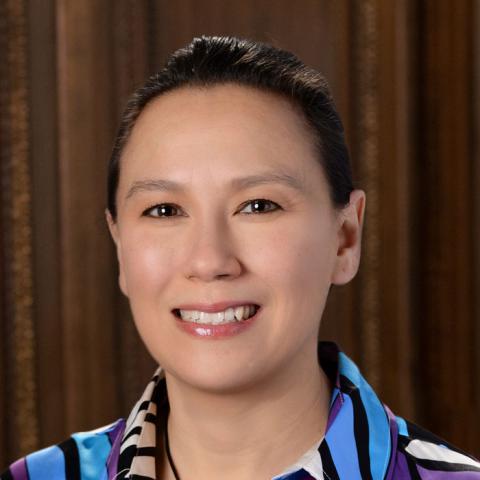Last week the Centers for Medicare and Medicaid Services (CMS) unveiled a new care model, called Medicare Geographic Contracting, or “Geo.” This model will have the effect of enrolling Medicare beneficiaries into a managed care–like plan; it is one of the most significant changes to the way Medicare beneficiaries receive health care since managed care was introduced into Medicare in the 1970s. The new model is generating significant buzz, but it is also raising critical questions, particularly among beneficiary groups.
What Is Behind the Demonstration?
Medicare enrollment is growing rapidly — by 2030, one of five Americans will be age 65 or older — and policymakers are testing innovative ways to ensure quality and control costs. Enrollment in managed care through Medicare Advantage plans is projected to become the dominant way beneficiaries receive their benefits within 10 years. The Geo model, which was developed in an earlier version during the Obama administration, incorporates some lessons learned from Medicare Advantage, as well as accountable care organizations (ACOs) and other payment and delivery reforms initiated by the CMS Innovation Center. Like these other models, if Geo lowers costs without decreasing quality or improves quality without increasing costs, the administration can expand it to other regions of the country.
How Will It Work?
The Geo model creates direct contracting entities (DCEs), which will be responsible for quality and costs of care for beneficiaries in traditional fee-for-service (FFS) Medicare in designated regions. DCEs can be ACOs, health systems, health care provider groups, or health plans. They will assume full financial risk for inpatient, outpatient, and physician services — that is, all services covered by Medicare Parts A and B, but not Part D outpatient prescription drugs.
CMS has identified 15 regions as potential sites and will select between four and 10. All are large urban areas, many in counties with the highest per capita Medicare spending in the country. In demonstration regions, virtually all beneficiaries in traditional Medicare will be required to enroll in a DCE, including people dually eligible for Medicare and Medicaid. Guidance from CMS emphasizes that beneficiaries’ out-of-pocket costs will not increase, and that cost-sharing or premiums could decrease if they use in-network providers. DCEs also may offer additional benefits, similar to Medicare Advantage plans, and can create provider networks, while possibly offering value-based payments to preferred providers.
Questions About the Model
In addition to basic operational questions, such as how beneficiaries will be assigned to participating DCEs and what happens if beneficiaries want to switch to another DCE, the Geo model also raises questions about spending and accountability.
- Impact on Medicare spending. According to CMS, DCE bids are expected to be lower than Medicare FFS spending on a per capita basis, but no lower than 8 percent to 9 percent below Medicare FFS spending. The model also seeks to protect DCEs from potential adverse risk and financial peril, using tools like risk corridors, risk adjustment, and quality-based payments. These protections for DCEs could ultimately reduce anticipated savings, particularly if beneficiaries require high-cost care. Will savings be less than CMS expects, and if so, how should the model be altered? Should modifications to the model increase competition and financial risk for DCEs, or provide them more tools to control the costs of care?
- Tracking beneficiaries’ spending and use of services. The model does not require DCEs to report claims or encounter data to CMS. Currently, data on Medicare spending and use of services is used to uncover possible fraud, identify inappropriate care, and develop best practices. Will policymakers, researchers, and oversight investigators be able to evaluate the program and ensure beneficiaries are receiving appropriate care without this information?
- Availability of supplemental benefits. DCEs can provide supplemental benefits not available in Medicare FFS (e.g., hearing aids, eyeglasses, transportation services), similar to Medicare Advantage plans. Unlike Medicare Advantage, the Geo model does not provide DCEs with funds dedicated to supplemental benefits. Will DCEs offer meaningful supplemental benefits if they must be funded from potential revenues? Will competition with Medicare Advantage plans provide enough incentive for DCEs to offer comparable benefits?
- Quality of care. Quality of care will be evaluated by surveying beneficiaries and measuring outcomes, similar to Medicare Advantage’s star ratings. Will these data be sufficient to evaluate care for frail and vulnerable beneficiaries?
- People dually eligible for Medicare and Medicaid. People dually eligible for Medicare and Medicaid will be automatically enrolled in DCEs that also operate Medicaid managed care organizations. Will DCEs be required to coordinate Medicare and Medicaid benefits within their organizations?
- Provider networks. DCEs can designate preferred providers and offer beneficiaries incentives to see them. CMS guidance states that preferred providers will be eligible for a 5 percent bonus, similar to participating in alternative payment models. How will preferred providers be selected? Will the resources give them flexibility to provide more integrated care?
- Future iterations of the model. The model could change in the future, either during the second three-year demonstration period, or after the demonstration ends if it is expanded to other regions. How will this model evolve? Could future DCEs look like HMOs with closed provider networks that limit beneficiaries’ access to specific providers? Could DCEs evolve into a premium support model? Will DCEs be allowed to offer Part D benefits in the future? Could DCEs improve or exacerbate inequities in health care?
In January, CMS will announce the DCE selected regions and issue a request for applications, which may provide answers to many of these questions. Participating DCEs will be selected by the end of June; the model will commence January 1, 2022.
The Geo model represents the most significant change to Medicare in decades; it incorporates many attributes that build on lessons learned from payment and delivery system reform. While there is much to commend in the approach and the potential for expanded benefits and reduced spending, important questions remain to be answered by new leadership in the Biden administration.



